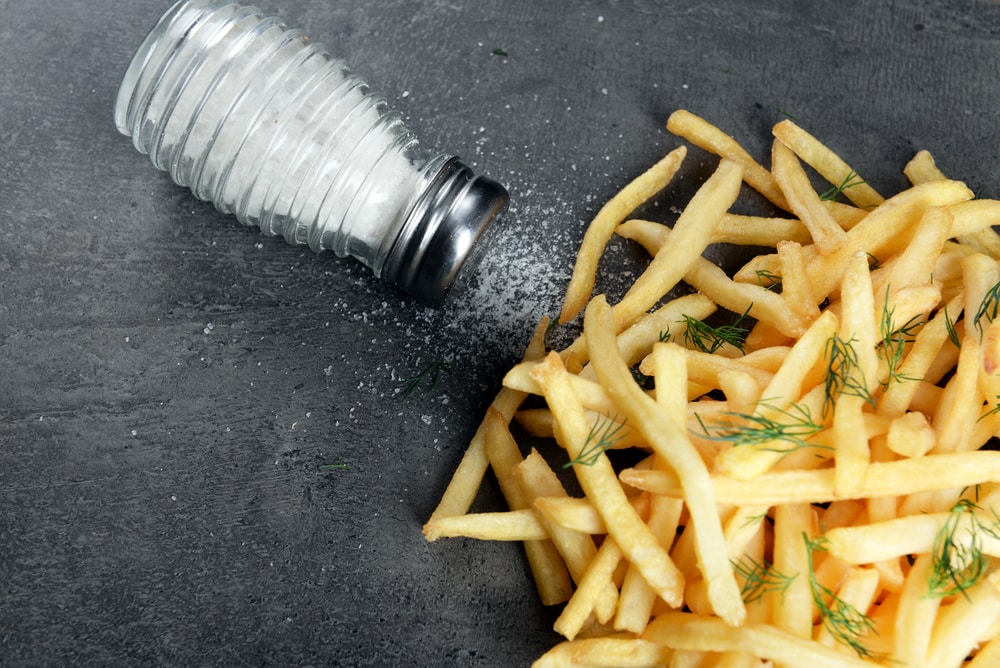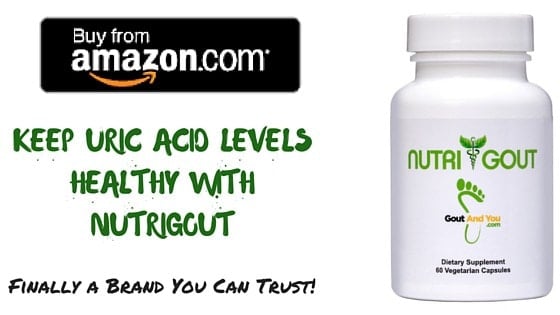Is The DASH Diet Really Good For Gout?
There was breaking news in the gout world these past few weeks regarding a study published in Arthritis & Rheumatology conducted by the American College of Rheumatology. Stephen Juraschek, MD, PhD, of the Johns Hopkins University School of Medicine, and his colleagues studied 103 adults with pre or stage 1 hypertension and participants were randomly chosen to consume either the DASH diet which stands for Dietary Approaches To Stop Hypertension or consume a control diet (your average American diet) and were further fed low, medium and high levels of sodium for a month, each in random order. Participants were given differing amounts of sodium – 1.2 grams (low), 2.3 grams (medium), or 3.4 grams (high). The higher figure equates to the standard American diet.
Now for those who don’t know the DASH diet emphasizes consuming fruits, vegetables, low fat dairy, whole grains, little meat and must be lean, fish, nuts, beans, yes beans and low saturated fatty foods. Sound familiar? If you’ve read my book and the posts on this site, it almost mimics my gout diet advice.
Anyway this DASH showed that it did in fact lower uric acid levels for the participants on average about 0.35 mg/dl. In subjects, who had uric acid levels over 7 mg/dl, the DASH diet lowered uric acid by more than 1 mg/dl. Now where it gets a little weird is that the increased salt intake is taking all the credit for lowering the uric acid levels.
To put that figure in perspective, drugs designed to treat gout like allopurinol mainly, generally lower uric acid levels by 2 milligrams per deciliter. Dr. Juraschek is quoted as saying, “When you get as high as the reduction we believe occurred with the original DASH diet in this study, the effect starts being comparable with gout medications.”
The researchers hypothesized that reducing sodium/salt intake would lower uric acid but they found the opposite was true. On top of it all, they are saying that the salt intake of the typical American diet, which is a lot and more salt than your body needs, is the main reason that the participants’ uric acid levels were lowered. The researchers go on to say how they don’t the mechanism by which increased sodium/salt intake decreases uric acid. This is unclear for them.
Furthermore, now the researchers recommend the DASH diet as an effective, non-pharmacologic approach to prevent gout flares. Dr. Juraschek says, “Physicians may now confidently recommend the DASH diet to patients with gout in order to lower uric acid levels.” Really? So now physicians will recommend the DASH diet so gout sufferers can eat more salt that risks them suffering from high blood pressure and causing other problems to their health.
They fail to ask the question that maybe just maybe, that credit should be given to the part of the diet and the fact that the participants ate less meat and ate more complex carbohydrates. As in fruits, veggies, whole grain breads, pastas, rices, nuts, beans, low fat dairy and fish as outlined in my book which comes with the “60 day blood test challenge or your money back guarantee” to prove to you that if you follow my gout diet plan, that you may lower your uric acid levels in the blood!
That is the truth and somehow it gets whitewashed with recommending we eat more salt to lower uric acid levels. That the increased salt intake is the real differentiator. Dr. Juraschek is also quoted as saying, “If one was to consume more sodium to improve uric acid, it could worsen blood pressure.”
So what to do?
Best to stick with gout diet plan that includes 10% of your daily calories as protein in lean meats and fish. 10% of your daily calories as in low dairy fat like milk, cheeses, yogurt, butter etc…and 80% of your daily calories should consist of complex carbohydrates as in fresh fruits, vegetables, whole grain breads, pastas, rices, nuts and beans.
You don’t need the extra salt, natural foods have enough salt in them already to meet your required daily needs, so like they say “take this study with a grain of salt” and best you don’t follow the DASH diet by increasing your salt intake all of a sudden. You don’t want to go from gout to high blood pressure as well. To common sense and to your health! Do not get deceived.

